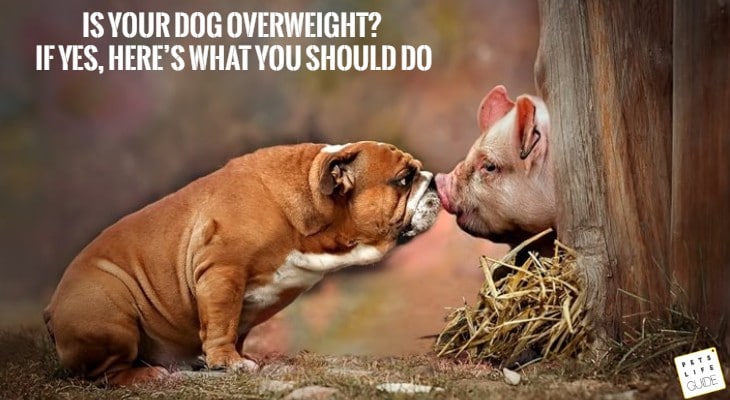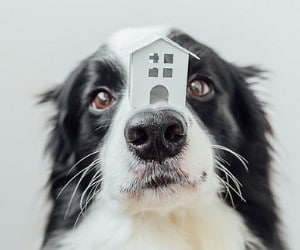Table of Contents
General Information
Are you looking for ways to ensure that your dog does not become weighty? Or is your dog overweight and are looking for ways to shed off the extra weight? Then you have stumbled the right post.
Dog, just like humans, can become obese. As a pet parent, it is your duty to ensure that your canine friend maintains an ideal weight. After all, dogs are man’s best friend, and as such, we should ensure they remain happy and healthy.
But what makes dogs overweight? How do you tell that your lovely pet is overweight? And what steps should you take when you realize that your dog is overweight? Well, read on and learn more:
Causes of Obesity in Dogs
If you’re taking dog obesity lightly, then you are mistaken. A 2018 study by the Association for Pet Obesity Prevention showed that about 56 percent of dogs in the US were obese. Worrying, right? Of course, the number is expected to rise if pet owners do not take the necessary precautions.
But what causes dog obesity? Well, food habits and lack of exercises seem to top the list:
Lack of Proper Exercises
Just like humans, the lack of proper exercise can have a significant impact on your pet’s weight. It is even worse during this lockdown period when most people are confined in their homes in line with government guidelines to observe social distancing.
To prevent your dog from gaining extra fat, consider exercising with your dog regularly. Even if you can’t go out with your dog during this period, find ways to exercise your dog within your compound.
Overeating
If you’re letting your dog eat more food than they should eat, then you’re setting them up to becoming obese. Some pet parents think that their dogs should eat throughout the day. This is not the case.
Your dog will always ask for more food, even when not hungry. It is your responsibility to control your dog’s eating habits.
Hormonal Imbalance
Your dog can also become overweight due to hormonal disorders such as hypothyroidism. Excess production of cortisol hormones can lead to Cushing’s disease, which causes excess fat buildup in the dog abdomen.
How to Tell if Your Dog is Overweight
Here’s what you need to do if you suspect your dog is obese:
- Touch the tail to see if you can feel the bone
- Touch around the ribs to see if you can feel them
- Check your dog’s breathing pattern
What to Do If Your Dog Is Overweight
Here’s what you can do to control your dog’s weight:
1. Monitor their Diet
One of the primary ways to control your dog’s weight is by lowering their fats and carb intake. To that end, it is advisable to avoid grains as they have carbohydrate content.
Dog food with fruits and vegetable formula comes in handy when trying to control your dog’s weight. Dr. Gary’s Best Breed Dry Dog Food is an excellent grain-free recipe for weight control. Dr. Gary’s best breed chicken dog food is ideal for dogs of all sizes and breeds. It comes with chickpeas, red lentils, and green peas, which are healthy alternatives for grains.
Even so, ensure to consult your vet before introducing your dog to a new diet.
2. Monitor their Eating Habits
Remember we stated that overeating could be the reason your dog is obese, right? Well, you need to control your dog’s eating habits at all costs.
Some people use human food as treats for their pets. However, this is dangerous and can work against your objectives. Instead, consider giving your dog toys as treats.
Also, ensure that your dog is not in the dining room when you’re having meals. This way, your pet cannot be tempted to eat your food, and you won’t feed them.
3. Exercise Your Dog More
Change in diet and reducing the amount of food your dog takes is not enough to cut off that extra weight. You’ll still need to exercise your dog more if you want to see any change.
If you’re already exercising your dog, consider increasing the amount and intensity of the exercises. Walking your dog for even ten extra minutes can do wonders in their weight loss journey.
4. Consult Your Vet
You should talk to your vet if your pet fails to cut off extra weight even after dietary changes and exercises. Your vet will conduct physical and blood tests to ascertain the underlying problem before advising you on a better weight loss plan for your dog.





Leave a Reply